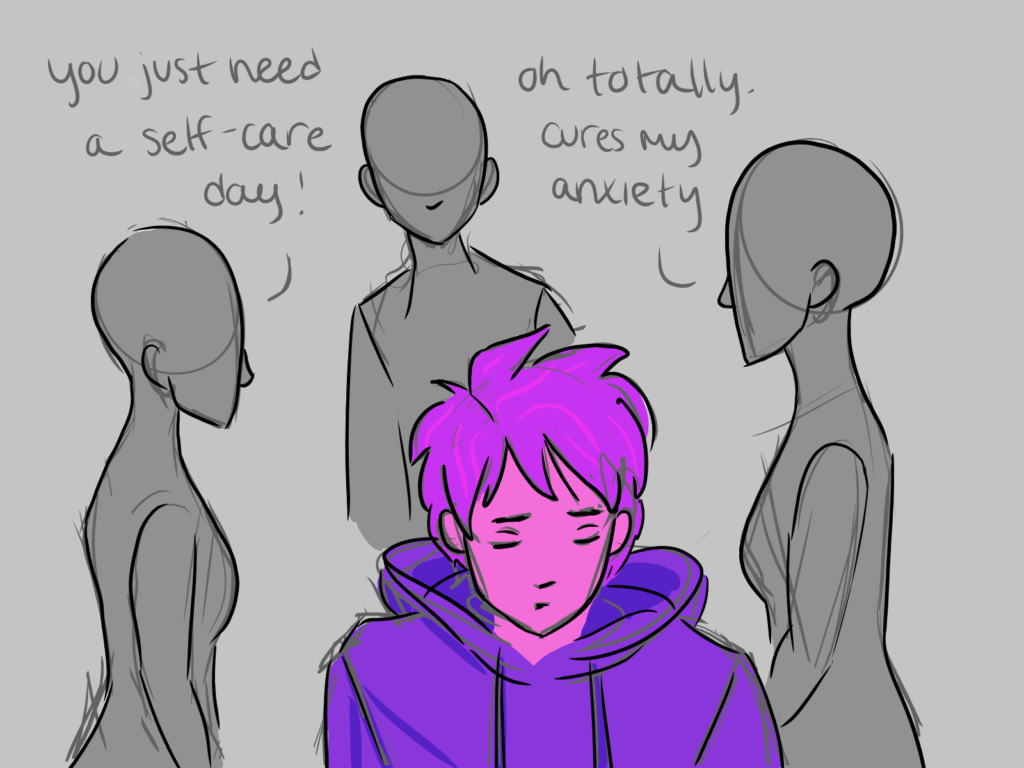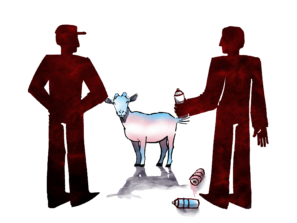
I remember the morning of my first high school final, walking onto campus and hearing students talking about their thoughts going into a big test. ‘If I fail this test, I am going to be so depressed.’
‘My anxiety is going through the roof!’
‘I think I’m getting a panic attack, I can’t do this right now.’
I felt similarly about the tests, as I also used these phrases to describe how I felt. I didn’t think much of these simple lines at first. I thought that it was a way to express being nervous for the test, or fear of failing the test.
I was never really educated on what these phrases truly meant. As I heard them more often, I realized that the real meaning of these phrases got lost over time, often without considering the impact of them in day-to-day speech.
Opening up and talking about mental health can be difficult. The fear of having conversations about mental health has created misunderstandings surrounding this topic as people may confuse everyday emotions with symptoms of mental illnesses. In an attempt to make mental health seem less intimidating, many have begun using mental health phrases casually, which at face value can help with destigmatization, but has led to many using these phrases to exaggerate an experience.
I’ve heard “I just got a bad grade, I feel so depressed right now,” or “Sorry if I get upset at you, I’m bipolar,” countless times; in reality, depression is more than something not going one’s way, and being bipolar is more than just experiencing mood swings. Without realizing it, the public creates a false image of what mental illnesses really are. Depression and bipolar disorder are just some of the mental illnesses that can have a detrimental effect on one’s mental, physical and emotional state. Society’s exaggerated perception of mental illnesses undermines those who live with these mental disorders throughout their lives by comparing them with those who might have had just one bad day.
However, using such phrases in everyday speech can help make mental illness less taboo. When these phrases are used appropriately, it can help people empathize with those who might be struggling with their mental health. The more that people correctly use these phrases, the more willing people are to open up, helping others realize they aren’t alone in the uphill battle. To combat the stigma, many celebrities have advocated for the destigmatization of mental health by encouraging empathy and openness. Celebrities such as the English pop singer Adele, NBA basketball player Kevin Love and actress Emma Stone have all opened up about their journey with their mental health using their platform, inspiring many others to open up about mental health themselves.
“Without realizing it, the public creates a false image of what mental illnesses really are”
However, it is important to realize the difference between positive and negative normalization. Normalizing mental illnesses in a positive way encourages many to open up and to educate those on the real meaning. However, throwing the phrases around without knowing the meaning undermines the feelings of those with mental illness. This makes those with mental illness seem like they are weaker and overdramatic.
Phrases like “being depressed” and “being OCD” among many others are used so frequently to the point where it has been ingrained into our daily vocabulary. Correct usage helps us fight the stigma, while improper use, like exaggerating a moment, has a negative impact on those experiencing mental health issues. Using these common phrases correctly creates a safer, and more understanding feeling of what mental illness really is.





